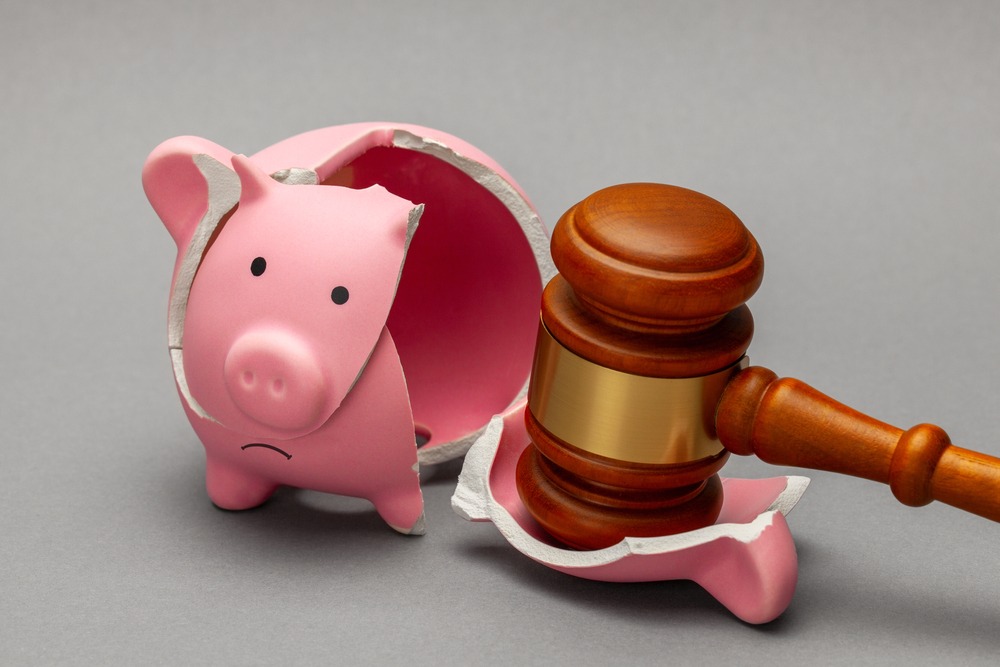
According to Investopedia, the leading reasons why Americans file for bankruptcy are:
- Exorbitant medical expenses
- Losing income from one’s job
- Excessive credit-related debt
- Divorce or separation
- Sudden, unexpected expenses
Although these are the top five reasons many people file for bankruptcy, they are not the only reasons why it may be best to file bankruptcy. Depending on your situation, you may want to speak with a lawyer who can help you retain your assets. Below, we will break down what you need to know about why and when filing for bankruptcy might be the best option.
What Should You Do if You’re Facing Bankruptcy?
It can be difficult, if not impossible, to sort out mounting financial debts on your own. Researching your options and understanding those options may be extremely difficult. A bankruptcy lawyer can explain your various options for financial relief in terms that you can easily understand.
If you’re facing bankruptcy, your next step should be to contact a law firm. The firm will assign you a bankruptcy lawyer to navigate you through the process. They can:
- Answer your questions: You likely have many questions about general bankruptcy and your options. Before reviewing your case and presenting your options, your lawyer will answer any pressing questions that you have.
- Explain the basics of bankruptcy: Like many legal processes in the United States, bankruptcy is shrouded in complicated terminology. Your team can give you a basic layout of what bankruptcy is, and how it applies to your unique circumstances.
- Review your financial circumstances: Before providing informed advice, your lawyer needs to know the source of your financial pressure, your outstanding debts, assets, and other key variables.
- Provide tailored advice: Bankruptcy is not recommended in every case, though it is often appropriate. Your lawyer will provide good-faith advice based on your personal situation.
- Complete bankruptcy proceedings on your behalf: Should you choose to file for bankruptcy, your lawyer can handle the process for you.
- Provide a roadmap for your post-bankruptcy future: Some clients may understand the bankruptcy process, but many do not know what comes after. A law firm not only prepares you for the bankruptcy process, but they also advise you on how to navigate life post-bankruptcy.
It is important that you file for bankruptcy in a thoughtful, thorough manner. When done properly, bankruptcy can preserve a financial future for you or your business. Having a bankruptcy attorney to lead the legal process may be a great benefit.
What Type of Bankruptcy Is Most Appropriate for Me?
There are four Chapters of bankruptcy that you can file. However, each Chapter has its own rules, guidelines, and proceedings. A lawyer cannot recommend a specific type of bankruptcy without first reviewing your circumstances. The four general types that are most common are the following:
Chapter 7
Liquidation bankruptcy is the most common for an individual person or married couple. Also called straight bankruptcy, Chapter 7 fully forgives your debts with limited exceptions. You will generally be appointed a trustee who will review your financial information and assets in order to determine if any assets can be liquidated to pay the debt you owe to creditors. However most individuals filing Chapter 7 bankruptcy are able to retain all assets. Chapter 7 will, however, stay on your credit report for a decade.
Chapter 11
Reorganization bankruptcy is more common for a business rather than an individual, but some individuals with a large value of assets and debts may apply for this Chapter as well. In this case for a company, the debtor will plan for both paying off debts while also continuing to operate the business, which is why it is called a “reorganization” bankruptcy.
Chapter 12
Also called a bankruptcy for family farmers, this Chapter is designed for farmers or family fishermen who have an annual income. Like Chapter 13, this allows a debtor to repay all or part of the debts over three to five years with a structured plan and will stay on a credit report for only seven years. The main difference with Chapter 12 is that it is a bit more streamlined and less expensive than either Chapter 11 or Chapter 13.
Chapter 13
Also called a wage earner’s plan, Chapter 13 helps reorganize your debt by providing an opportunity to repay part or all of your debts through a repayment plan approved and overseen by the bankruptcy court. Typically, you will be able to repay creditors in established installments over three to five years. Chapter 13 stays on your credit report for only seven years.
When filing for bankruptcy, you may want an attorney who is familiar with each Chapter. Once the attorney has all necessary facts of your situation, they can recommend the most appropriate filing type for you.
Personal Injury Lawyer Near Me 828.286.3866
If You’re Considering Bankruptcy, You’re Not Alone
If you are facing financial pressures that have you considering bankruptcy, you’re not alone. Per U.S. Courts, there were more than 612,000 bankruptcies in 2020. This is consistent with other recent years and indicates how many individuals and businesses file for bankruptcy each year.
However, bankruptcy may not be necessary in your case. You may want to consult a law firm to review your circumstances. They can inform you of any resolutions that allows you to avoid bankruptcy.
If you do decide to file for bankruptcy, know that you’re not the first nor the last person to file. You can bounce back just as countless other Americans have. Whether you’re facing medical bills or an unexpected separation, you may want to have help as you navigate filing for bankruptcy.
Financial Pressures Can Come from Many Sources
Every client filing for bankruptcy has a unique story. Though the top five reasons above are the most common, each situation is different depending on the finances of an individual or a company. Therefore, bankruptcy can result from a wide variety of financial pressures, including:
- Professional debts: If you are a business owner who has a downturn in business, a dispute with partners, or liabilities that have become too much to handle, then Chapter 7 or Chapter 11 bankruptcy may be an option.
- Credit card debt: The high interest rates that credit card companies charge can sneak up on customers. If you have credit card debt that has become unpayable, then bankruptcy may be an option for you.
- Loans that have become untenable: If you have accepted personal or business loans that you can no longer pay, then these debts may lead you to file for bankruptcy.
- Your farm has experienced financial difficulties: Chapter 12 bankruptcies in agricultural states have increased in recent years, per the Economic Research Service (ERS). If your farm has put you in a difficult financial position, then bankruptcy may be one way to alleviate the pressure.
Remember, each case is different. These and other financial burdens such as medical expenses, a lost job, poorly managed credit, changes in marital status, and sudden expenses may also lead to a bankruptcy filing. No one factor alone can determine if your financial situation would benefit from filing.
Call Farmer & Morris Law, PLLC Today to Discuss Your Circumstances
If you’re considering bankruptcy, you’ve dealt with stressful financial issues for long enough. Speaking with our team may provide peace of mind. Regardless of the path you ultimately pursue, we can handle your bankruptcy filing for you.
Call Farmer & Morris Law, PLLC today for a consultation. We’ll answer your questions, provide advice for your specific circumstances, and provide further assistance should you choose to proceed. Financial stresses don’t have to be permanent. We’ll help you find a path to a brighter future.









